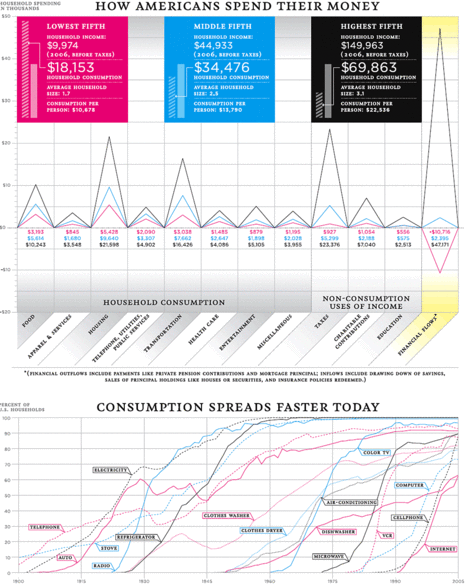(p. A11) BEIJING-A high-speed train from Beijing is scheduled to glide into Shanghai’s Hongqiao railway station on Thursday after its inaugural run, an event meant to showcase China’s technological prowess but one that lately has become part of a national debate about the pitfalls of megainvestment projects.
. . .
Detractors focus on corruption and safety problems that have lately tarnished the project’s image. Pricey tickets, they say, underscore China’s already huge rich-poor gap–and doom the trains to run half-empty, straining the national budget for years to come.
. . .
“Physically, they are good assets,” says Ding Yuan, an accounting professor at China Europe International Business School in Shanghai. “Financially, they are all black holes.”
More broadly, the high-speed rail problems underscore the shortcomings of a growth strategy that depends ever more heavily on investment in projects whose economic payoffs are uncertain.
. . .
Railways Minister Liu Zhijun proselytized for high-speed rail, telling leaders from Hubei province in January that they needed to “seize the rare opportunity to accelerate the development of the railway,” according to a Railways Ministry report.
. . .
Government spending on rail projects ballooned from 155 billion yuan in 2006 ($24 billion) to a budgeted 745 billion yuan ($115 billion) in 2011, according to state-run Xinhua news agency. The ministry’s debt ballooned to about 5% of GDP in the first quarter of 2011 from about 2% in 2007.
The project’s flaws became painfully clear in February, when Mr. Liu was fired amid allegations that he embezzled around $30 million. Although government investigators didn’t cite criticisms of the railway project, Mr. Liu’s successor, Sheng Guangzu, has scaled back plans to focus on projects already under construction, rather than expansion. Railway consultants say work has been suspended on new lines, including Hubei projects the fired minister was pushing.
For the full story, see:
BRIAN SPEGELE and BOB DAVIS. “High-Speed Train Links Beijing, Shanghai; Cornerstone of China’s Rail Expansion Illustrates Megaprojects’ Speed Bumps.” The Wall Street Journal (Weds., JUNE 29, 2011): A11.
(Note: ellipses added.)




